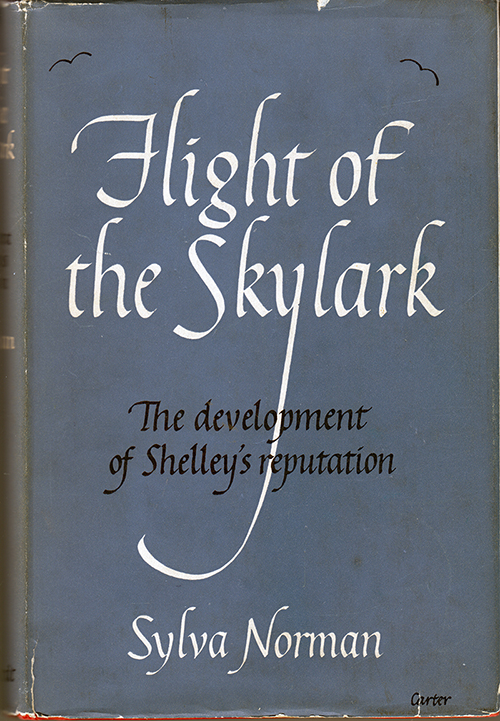Flight of the Skylark: The Development of Shelley’s Reputation by Sylva Norman was published in 1954. This book is surprisingly witty for the work of a scholar but it takes its subject seriously. The wit of the author made this book easy to read and less dry than a work of a humorless scholar. This book describes how the reputation of Percy Bysshe Shelley as a poet has changed over the years. It covers the period immediately after his death, when Mary Shelley worked to preserve her husbands literary legacy. Then it gets into the Victorian era when the Romantic period was being reevaluated. The book pretty much ends when the Shelley Society came to its end. I found this book slightly disappointing because I was expecting a serious analysis of Shelley’s genius and how various literary figures either recognized his genius or failed to appreciate his poetry. Instead, there was a lot of petty moralizing about Shelley’s morals and character. After the Victorian era morality became less strict and Shelley was no longer seen as a scandalous figure. The book also fails to cover the modern era so we don’t learn how Shelley’s work was evaluated by changing literary theories.

Percy Bysshe Shelley interests me because he is a very difficult poet to understand. He could be understood as a radical, a visionary, a philosopher, or a great writer. To me it is clear that he was something of a visionary and this seems to be how William Butler Yeats saw him. However many scholars and writers only appreciate his radicalism. For example, on page 272 George Bernard Shaw clearly states the limit of his understanding:
Discussing The Revolt of Islam, Shaw says, “A poem ought to be didactic, and ought to be in the nature of a political treatise.” He is himself the perfect Fabian who cares more for Socialism than for art. His choice is Shelley the conspirator, not Shelley the poet. The latter he would readily tear for his bad verses, which get in the way of the maxims.
This makes Percy Bysshe Shelley a great test of a reader’s ability to recognize a certain type of genius. Any writer who takes a great interest in his work should be seen as something of a fellow spirit, assuming the writer or scholar does not focus on his atheism or radical politics. One such fellow spirit might be the American poet and novelist Elinor Wylie who was said to be obsessed with Shelley. She wrote some novels based on this obsession which I am eager to read. She was also an accomplished poet herself.
The Flight of the Skylark is also very informative on the history of early Shelley publications and biographies and some artwork like drawings, etchings, monuments and busts meant to celebrate the great poet.